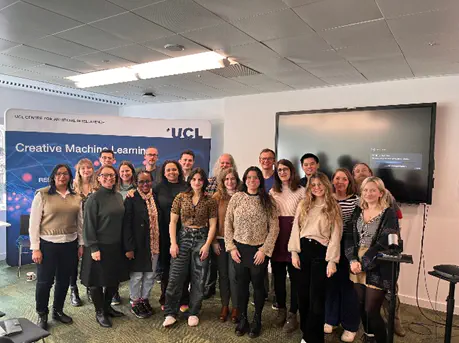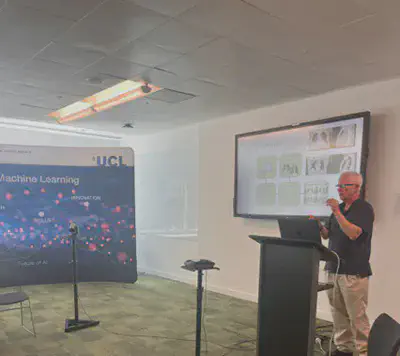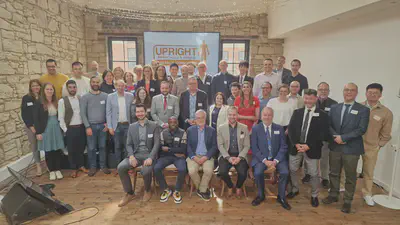RTIC News 2024

News: RTIC host UCL- Christie workshop, March 2024
RTIC hosted the second ever UCL- Christie radiotherapy workshop at CMIC in March 2024. It was a brilliant two days discussing image-computing-based research in radiotherapy and developing future collaborations across the two UK centres.
The meeting covered discussions on the methods and applications of longitudinal modelling of cancer patients treated with radiotherapy. Specifically, sessions covered paediatric radiotherapy, patient anatomical changes in radiotherapy, toxicity biomarkers and AI for synthetic image generation.
The two day workshop was an excellent show case of research in the field from across the UK, with fantastic potential for future collaborations across the groups. In RTIC, we loved hearing about the connected research areas and hosting the workshop in London.

News: RTIC host pre-ESTRO meeting at CMIC
In March 2024, one of RTIC’s members Poppy Nikou visited UCLA to present her work on “Modelling of anatomical changes in head and neck cancer patients during radiotherapy”.
Following this visit, RTIC hosted a pre-ESTRO meeting at CMIC. Professor Daniel Low gave a talk titled “Beyond 4D-CT: It’s about time” which sparked great discussion. Our pre-ESTRO meeting was followed by a tour of the proton centre at UCLH, provided kindly by Dr Yen Ching Chang, the clinical lead at UCLH PBT.

News: RTIC research group attend Upright Consortium 2024
We were delighted to have attended the second in-person meeting of the upright consortium on the 3rd May 2024, hosted and sponsored by Leo Cancer Care. The consortium is formed by a community of researchers from academia, industry, and clinics, all interested in developing and promoting upright radiotherapy. The consortium included presentations from different academic and industrial institutions on their last developments.
During the proffered mini-oral presentation session, Timothy Lo presented his work on “Computer Vision-based Marker Detection for Quantitative Assessment of Upright Position Reproducibility” at the consortium. He also commented: “It was a great experience and a valuable opportunity to learn about what research is being conducted outside of my team at the moment.
The consortium allowed for exchanges in ideas and knowledge without the process of formal publication. If it weren’t for the consortium, who knows how long it would take for all this work to be public.”